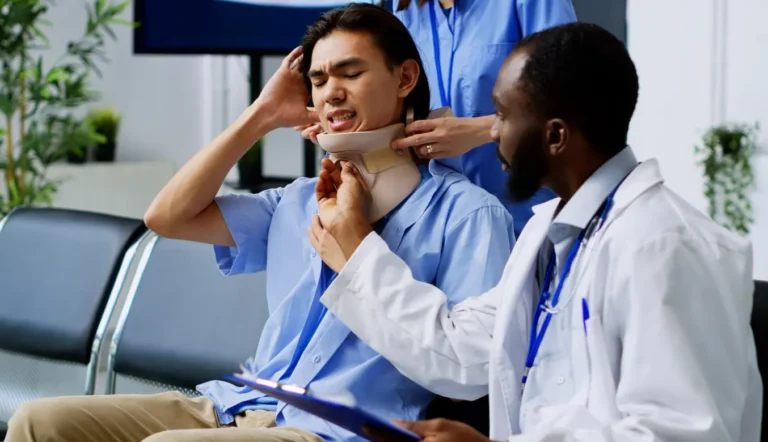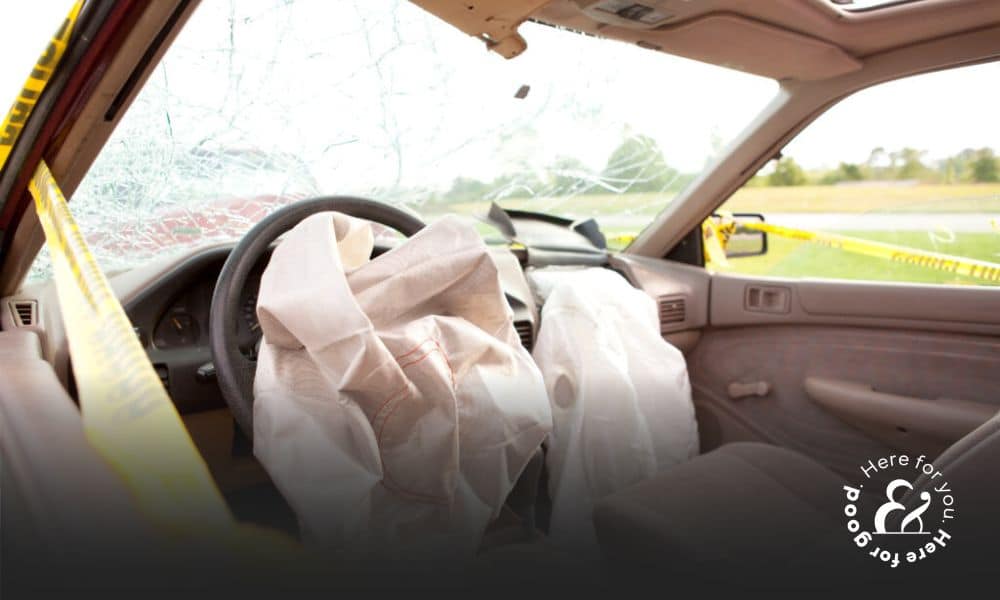Being involved in a car accident is a frightening experience, and as a passenger, you may feel especially helpless since you weren’t in control of the vehicle. If you’re injured as a passenger in a Florida car accident, you have rights and legal options to seek compensation for your injuries. Florida’s no-fault insurance system and liability laws can make the process confusing, but Farah & Farah is here to help you understand what you should do if you’re injured as a passenger.
#1: Seek Immediate Medical Attention After a Car Accident
If you’ve been in a car accident, your health should be your first priority. Even if your injuries seem minor, it’s important to get checked out by a medical professional. Some injuries, such as whiplash or internal injuries, may not show immediate symptoms but can worsen over time. Getting medical attention in a timely manner not only helps treat any injuries you may have more quickly but it also creates a paper trail of documentation pertaining to your injuries from the accident.
#2: Report the Car Accident to the Police
Make sure the car accident is reported to the police. As a passenger, you can provide a statement to the responding officer and ensure that your perspective is included in the accident report. This document will be vital for determining liability and supporting your claim as well as the driver’s claim.
#3: Collect Accident Information
Just because you weren’t driving doesn’t mean that you won’t also need to prove that your injuries were caused by the accident. Gather as much information as you can pertaining not just to your injuries but also to the accident in general, such as:
- Names, contact information, and insurance details of all drivers involved
- Vehicle license plate numbers and descriptions
- Contact information for any witnesses
- Photos of the accident scene, vehicles, and your injuries, if possible
This kind of information can help to prove to your insurance company that your injuries were caused by the accident.
#4: Document All Medical Costs
Keep detailed records of all accident-related expenses and losses, including:
- Medical bills and treatment costs
- Prescription medications
- Lost wages if your injuries prevent you from working
- Any other financial impacts caused by the accident
Having these records on hand will help to demonstrate to your insurance company the true costs of the accident not just on your physical health but on your life and future as well. Insurance companies may try to undervalue claims, so having proof of the total cost of the injuries can help to prevent this.
Insurance companies may also try to claim that your injuries were from before the accident. Extensive medical records can help to disprove this claim as well.

If you were injured in an accident due to someone else’s negligence, Farah & Farah is here for you. We’ve relentlessly fought for the right to compensation for our clients and their families since 1979.
#5: Check Your Insurance Policy
Florida is a no-fault insurance state, which means that injured parties generally turn to their own Personal Injury Protection (PIP) insurance to cover medical bills and lost wages, regardless of who caused the accident. Your own PIP insurance policy would be the first to pay out for your medical bills, but if you don’t have it, then that of the driver or possibly of the other driver may cover those instead.
PIP coverage is limited and only covers up to $10,000 in medical expenses and lost wages, so for more serious injuries, additional claims may be necessary.
#6: Consult With an Attorney
Filing an insurance claim may be more straightforward if you’re the driver. As a passenger, it can be confusing to figure out where to make the insurance claim. An attorney who is well-versed in car accidents and liability can help you figure out who is the most liable party in the accident, such as:
- The driver of the car you were in, if they were at fault
- The driver of another vehicle involved in the accident
- Third parties, such as vehicle manufacturers or road maintenance crews, if their negligence contributed to the crash
An attorney can also help you to figure out where to file an insurance claim, since there are multiple possibilities that may be responsible for covering your injuries.
#7: File an Insurance Claim
Depending on your insurance situation, you may need to file a claim with one or more of the following:
- Your PIP insurance provider
- The at-fault driver’s bodily injury liability (BIL) insurance
- Uninsured/underinsured motorist (UM/UIM) coverage
An attorney can help you figure out which of these you should be filing to maximize the potential recovery from your insurance claims so you aren’t left paying for medical bills out of pocket.
#8: Don’t Accept the First Offer
Insurance companies may try to get you to accept a lower offer than what you actually deserve by lowballing the first offer. This is in the hopes that you’ll accept less than what your claim is worth in the interest of getting the money more quickly. However, it can be worth it to dispute this lowball offer and work with an attorney to maximize what you can get from your claim. In some cases, going to court may be necessary to convince the insurance company to pay out what they actually owe.
At this point, if you haven’t already spoken to an attorney, it’s a good idea to get legal representation to help make the insurance company pay the true value of your claim.
Farah & Farah’s Car Accident Attorneys Are Here for You
The aftermath of a car accident can be the worst time of someone’s life. It’s our goal to be there for you every step of the way. The insurance company may not be on your side, but that’s why we are. As a passenger, it may not be initially clear whose insurance ought to cover your injuries and we’ll help you figure that out. Contact us today for a free consultation. You won’t have to pay a dime unless your case is successful.










